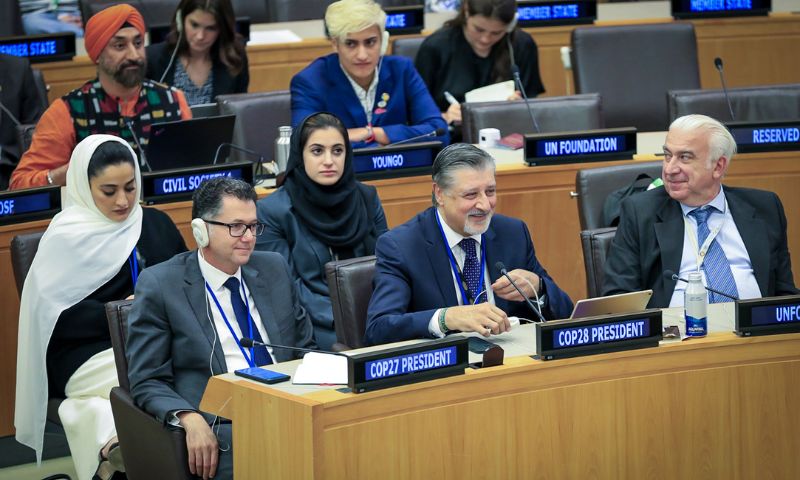NEW YORK: As the world grapples with the escalating challenge of climate change, Adnan Amin, the CEO and second-in-command at the upcoming Conference of Parties (COP28) to be held in Dubai in late November and December, is determined to prove the skeptics wrong. He envisions a “course correction” to steer our planet away from the trajectory of relentless warming, even though he acknowledges that a radical departure may not be on the immediate horizon.
In a recent interview with The Associated Press, Amin shed light on the intricacies of navigating the diplomatic landscape and emphasized the need for progress, however incremental, towards decarbonization. Amin’s perspective is framed by the unique circumstances of COP28: its president, Sultan al-Jaber, hails from the oil industry, highlighting the complexity of the task at hand.
Amin ardently defends al-Jaber, underscoring his involvement in renewable energy initiatives and the founding of the U.N.’s renewable energy agency in the UAE. He firmly believes that COP28, hosted by the United Arab Emirates, will surprise critics with its outcomes, especially in a world where scepticism about oil-producing countries’ commitments to combating climate change abounds.
#COP28 CEO, Adnan Amin, engaged with heads of International Financial Institutions during a #LossAndDamage roundtable discussion, attended by @AminaJMohammed. He emphasized that more must be done to unlock capital & close the funding gaps to support frontline communities. pic.twitter.com/PD5xhu2bBh
— COP28 UAE (@COP28_UAE) September 20, 2023
Ten years from now, Amin hopes for resounding amazement from critics as they reflect on COP28. He envisions them acknowledging the improbable achievements, recognizing the necessity of a course correction to bring us all to a place of collective comfort regarding the climate.
Central to the discussions at COP28 are the roles of coal, oil, and natural gas, the nations dependent on them, and the corporations profiting from them. Amin is willing to engage with fossil fuel interests in the negotiations, acknowledging the necessity of their involvement, even as calls for a complete phase-out of fossil fuels persist.
However, Amin’s stance aligns more with a “phase-down” of fossil fuels rather than a “phase-out,” acknowledging the practical challenges and the need for a balanced approach. He points out the desire of some African nations to utilize fossil fuels for their development, echoing concerns about equitable access to energy and economic growth.
Critics like Mohamed Adow, director of Power Shift Africa, emphasize the urgency of a phase-out and criticize using Africa’s poverty to promote fossil fuels. They stress that to effectively address climate change, a decisive move away from fossil fuels is imperative.
Notably, climate scientists Niklas Hohne and Bill Hare emphasize the crucial distinction between “phase out” and “phase down,” asserting that the fossil-fuel industry primarily seeks a “phase down” while the world needs a more aggressive approach.
Amin’s vision for success at COP28 encompasses crucial objectives: enhancing climate financial aid from affluent nations to poorer ones, accelerating the decarbonization of energy systems, augmenting funding for nations to adapt to a warming world, and ensuring the inclusivity of various groups in the negotiations.
























